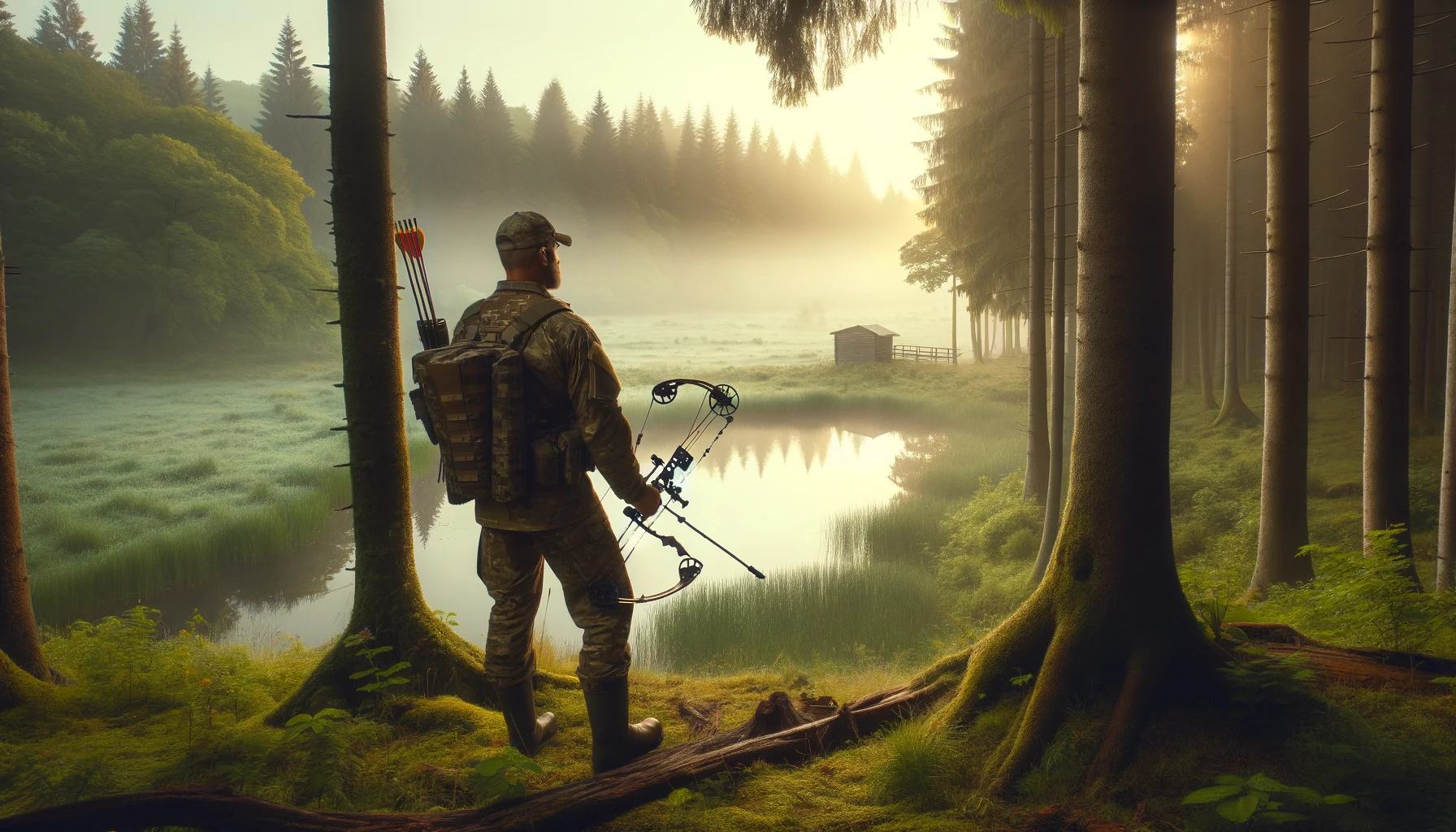
Hunting, often seen as a mere outdoor activity, transcends its traditional boundaries to become a therapeutic avenue for those who’ve served in the military. The transition back to civilian life can be a tumultuous journey for many veterans, fraught with challenges such as PTSD, anxiety, and depression. However, the tranquility of nature combined with the discipline of hunting has emerged as an unexpected yet effective form of therapy. In this comprehensive guide, we delve into the multifaceted ways in which hunting aids veterans’ recovery, providing solace, healing, and a path forward.
Table of Contents
The serene beauty of the great outdoors can act as a balm for troubled minds. Veterans, who have endured the cacophony of war, find peace and solitude in the rhythmic sounds of a forest or the silent snowfall in a hunting ground. It’s in these moments of quietude that many begin to reconcile with their inner turmoil.
Biophilia, the inherent human inclination to affiliate with nature, plays a significant role in why hunting in the wild is therapeutic. The natural world’s rhythms can help regulate stress levels and enhance mood, making it an ideal setting for recovery.
Hunting requires patience, precision, and focus. For veterans, the concentration demanded by tracking and hunting game can serve as a form of mindfulness practice, redirecting thoughts away from past traumas to the present task. This intense focus aids in managing PTSD symptoms, providing a reprieve from intrusive memories.
Successfully navigating the wilderness and hunting requires skill, knowledge, and perseverance. For many veterans, the sense of achievement from a successful hunt fosters self-esteem and confidence, feelings that can be eroded by the challenges of reintegration into civilian life.
Hunting often involves group outings, creating opportunities for veterans to connect with others who have similar backgrounds and experiences. These shared adventures can forge strong bonds, offering a support network that understands the unique challenges faced by those who have served.
Peer support is a cornerstone of recovery for many psychological conditions, including PTSD. Hunting trips provide a relaxed environment for open communication, allowing veterans to share their stories and coping strategies in a non-judgmental setting.
Hunting is physically demanding, requiring individuals to hike through various terrains, which promotes physical health. Regular physical activity is known to improve mental health by reducing symptoms of anxiety and depression.
Harvesting game provides access to lean, organic meat, free from the hormones and antibiotics found in much commercially available meat. A diet rich in high-quality protein can contribute to overall physical well-being, further supporting mental health recovery.
Engaging in ethical hunting practices encourages veterans to become stewards of the environment. This role can instill a sense of purpose and responsibility, enhancing their recovery journey.
Hunters play a crucial role in wildlife management and conservation efforts. Understanding this contribution can provide veterans with a broader perspective on their activities, linking their personal healing process with the health of the ecosystems they engage with.
Hunting offers more than just a return to nature; it provides a pathway to healing for many veterans struggling with the aftermath of their service. Through the discipline of hunting, the camaraderie found in shared experiences, and the physical and mental health benefits, veterans can find a sense of peace, achievement, and purpose. As we continue to explore and support alternative therapies for veterans, the role of hunting as a therapeutic practice deserves recognition and expansion.
Healing in the wild is not just about the hunt; it’s about reconnecting, recovering, and rediscovering a sense of self. For many veterans, the journey to recovery is paved with the trails they walk in the woods, the quiet moments before dawn, and the community they build along the way.
Incorporating hunting and outdoor activities into recovery programs can offer a complementary approach to traditional therapies, highlighting the importance of nature, physical activity, and community in the healing process. As society seeks to honor and support those who have served, recognizing and facilitating access to such therapeutic activities will be crucial in aiding their transition back to civilian life.
Yes, hunting can significantly help with PTSD and anxiety. The activity requires focus and presence in the moment, which can serve as a form of mindfulness, helping to reduce symptoms of PTSD and anxiety. The natural setting, physical activity, and social aspects of hunting also contribute to its therapeutic effects.
No, most programs designed for veterans welcome individuals with all levels of experience, including beginners. These programs often provide training and support to ensure that all participants can engage safely and effectively in hunting activities.
Yes, there are several organizations dedicated to offering hunting, fishing, and outdoor recreational programs specifically tailored for veterans. Organizations such as Wounded Warrior Project, Backcountry Hunters & Anglers, and Project Healing Waters are known for their efforts in facilitating outdoor experiences for veterans.
Hunting encourages an active lifestyle, requiring individuals to navigate various terrains, which can improve cardiovascular health, endurance, and muscle strength. Additionally, the organic, lean meat obtained from hunting provides high-quality nutrition, supporting overall physical health.
Ethical hunting practices play a vital role in wildlife management and conservation by helping to control animal populations at sustainable levels, reducing overpopulation issues, and contributing financially to conservation efforts through licensing fees and taxes on hunting equipment. Hunters are often actively involved in habitat restoration and preservation initiatives, further supporting environmental conservation.
For decades, the 3–9×40 rifle scope has been one of the most iconic optics used…
Tuning a compound bow can feel intimidating, especially if you’re new to archery or don’t…
The world of compound bows is filled with innovation, craftsmanship, and brand loyalty. Among all…
A hunting rifle is one of the most trusted tools in the field. It doesn’t…
Upland bird hunting especially for pheasant and quail is one of the most rewarding pursuits…
A hunting rifle is more than just a tool it’s a trusted companion in the…
This website uses cookies.